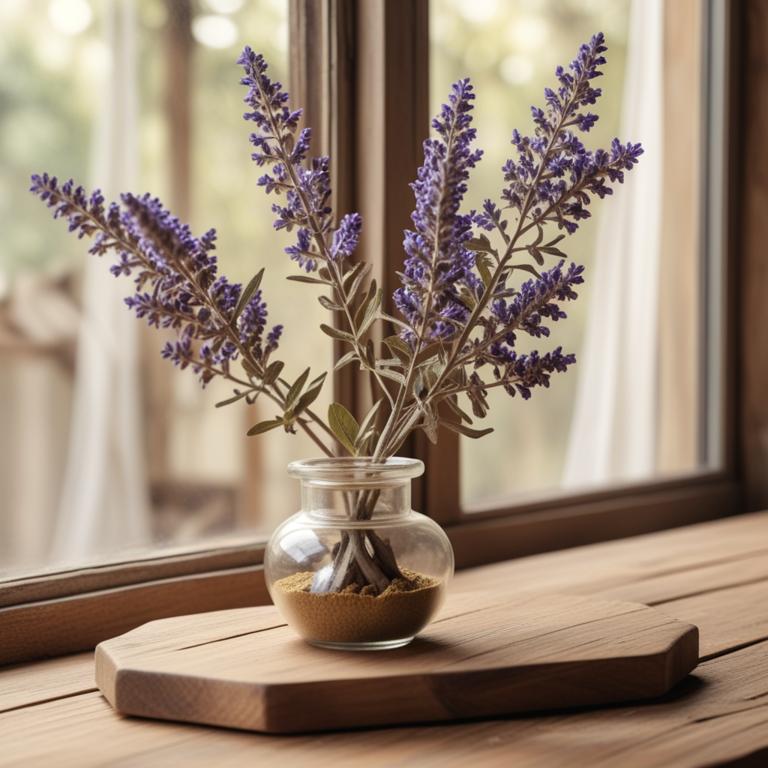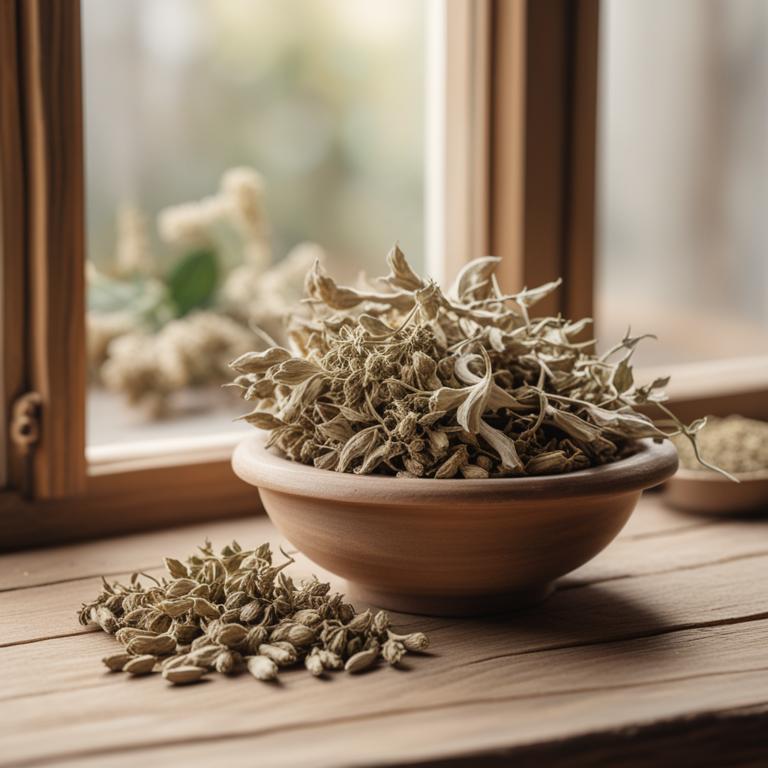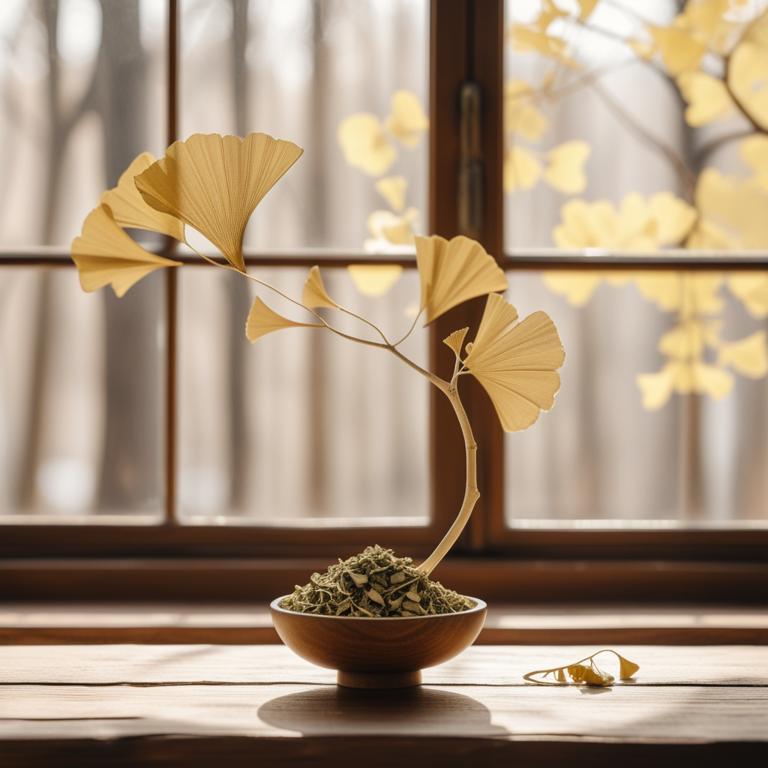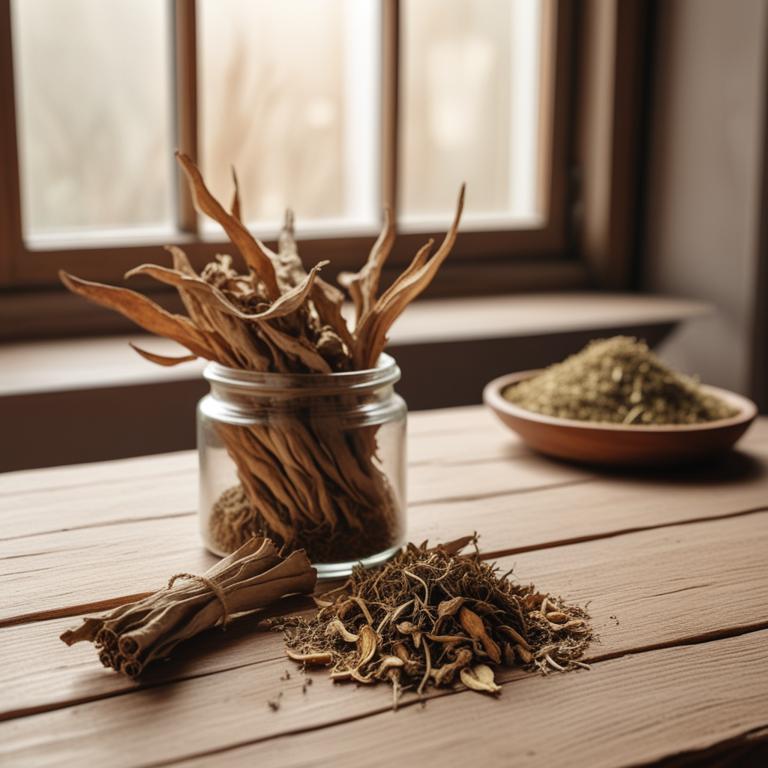Updated: Dec 1, 2024
Overcoming Premenstrual Syndrome: Causes and Effective Herbal Remedies
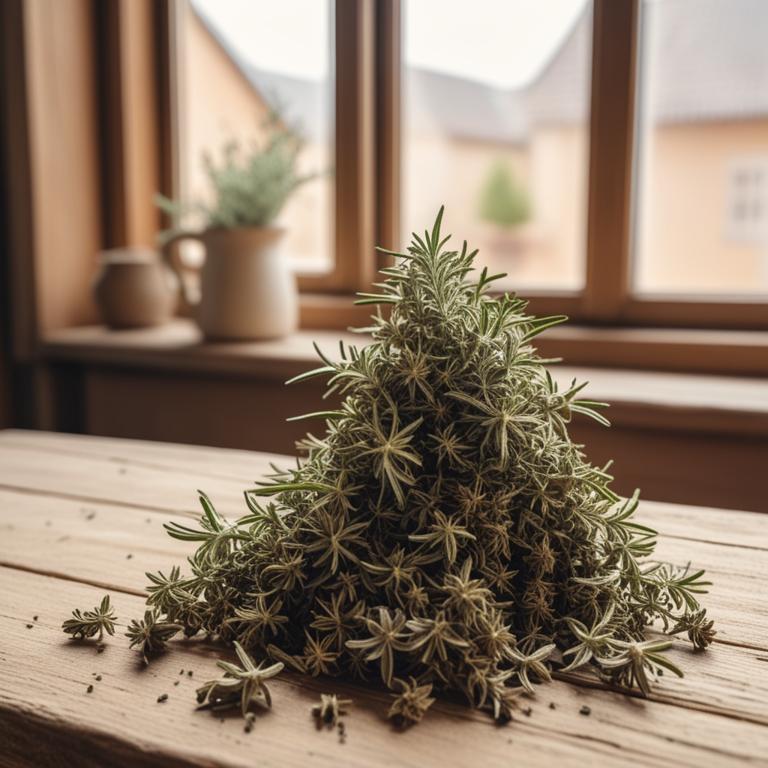
Premenstrual syndrome, or PMS, is a common condition that affects many women before their periods.
It can cause a range of symptoms, from mild to severe, including mood swings, bloating, cramps, and fatigue. These symptoms can make everyday life difficult, affecting work, relationships, and overall well-being. So, what causes PMS?. Hormonal changes are a major contributor, as the drop in estrogen and progesterone levels can disrupt the body's delicate balance.
Herbal remedies have been used for centuries to help alleviate PMS symptoms. Some of the most effective herbs include chasteberry, which helps regulate hormonal imbalances, and ginger, which reduces inflammation and eases cramps. Other herbs like black cohosh and dandelion root can help ease mood swings and bloating. To use these herbs, you can try drinking teas, such as chasteberry or ginger tea, or taking supplements in capsule form.
Some herbal teas, like peppermint or chamomile, can also help calm the mind and body, promoting relaxation and reducing stress.
Table of Contents
- What are the underlying causes of premenstrual syndrome?
- What are the benefits of herbal therapy for premenstrual syndrome?
- What are the most commonly used medicinal herbs for premenstrual syndrome?
- Which herbal preparations are typically used to treat premenstrual syndrome?
- Are there any herbs that should be avoided due to premenstrual syndrome?
- FAQ
What are the underlying causes of premenstrual syndrome?
The main causes of premenstrual syndrome are related to the physical and emotional changes that occur in a woman's body in the days leading up to her period.
Hormonal fluctuations, particularly the drop in estrogen and progesterone levels, play a significant role. Estrogen levels tend to rise during the first half of the menstrual cycle, causing an increase in fluid retention, breast tenderness, and mood swings. However, when estrogen levels drop, it can lead to feelings of anxiety, depression, and irritability.
Progesterone, on the other hand, helps regulate mood, appetite, and sleep. When progesterone levels are low, it can disrupt these functions, contributing to symptoms like fatigue, insomnia, and mood swings. Additionally, serotonin levels, a neurotransmitter that helps regulate mood, appetite, and sleep, tend to drop during the premenstrual phase.
This decline in serotonin can exacerbate symptoms like anxiety, depression, and mood swings.
What are the benefits of herbal therapy for premenstrual syndrome?
Using herbs for premenstrual syndrome (PMS) can bring several benefits.
They can help reduce symptoms like bloating, mood swings, and cramps. Some herbs have anti-inflammatory properties, which can ease cramps and discomfort. They can also help balance hormones and reduce water retention, leading to a reduction in bloating.
Additionally, certain herbs have a calming effect on the mind and body, which can help alleviate anxiety and irritability that often come with PMS. Some herbs may also help improve sleep quality, which is often disrupted during this time. By reducing stress and anxiety, herbs can also help regulate appetite and reduce cravings for unhealthy foods.
Furthermore, some herbs have been found to have natural diuretic properties, which can help reduce bloating and water retention.
What are the most commonly used medicinal herbs for premenstrual syndrome?

Herbs have been used for centuries to help alleviate the symptoms of premenstrual syndrome (PMS).
One of these herbs is Paeonia lactiflora, also known as peony root. It's been shown to have anti-inflammatory properties, which can help reduce bloating and breast tenderness. Another herb, Cimicifuga racemosa, or black cohosh, has been found to ease anxiety and depression symptoms, which are common during PMS.
Zingiber officinale, or ginger, is a natural anti-inflammatory that can help with menstrual cramps and nausea. Vitex agnus-castus, or chasteberry, has been used to regulate menstrual cycles and reduce symptoms such as mood swings and bloating. Finally, Lavandula angustifolia, or lavender, has been shown to promote relaxation and reduce anxiety, helping to calm the mind and body during PMS.
These herbs can be consumed in various forms, such as tea, capsules, or tinctures, and can be used individually or in combination to help manage PMS symptoms.
Which herbal preparations are typically used to treat premenstrual syndrome?
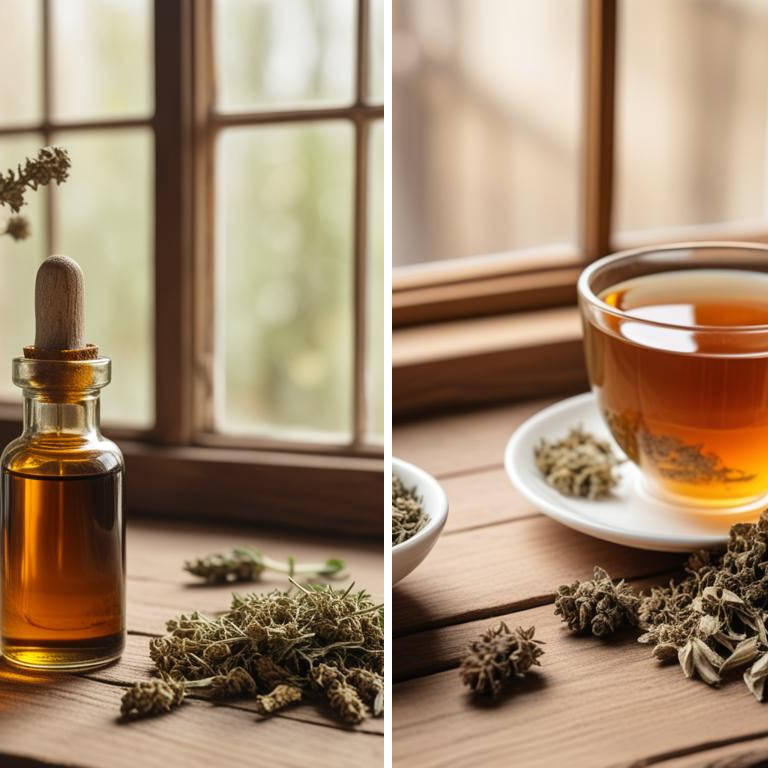
Herbal preparations are a great way to manage premenstrual syndrome (PMS) symptoms.
A tincture of chamomile or lavender can help calm anxiety and promote relaxation. You can also try drinking tea made from herbs like peppermint or raspberry leaf, which can ease cramps and soothe your stomach.
Decoctions, like one made from ginger and turmeric, can help reduce inflammation and ease pain. Taking a capsule of vitamin B6 or magnesium from herbal sources can also help alleviate symptoms like mood swings and fatigue. Another option is an infusion of red clover or dandelion root, which can help balance hormones and reduce bloating.
These herbal preparations are good because they're natural, easy to use, and can be tailored to your specific needs.
Additional Resources:
Are there any herbs that should be avoided due to premenstrual syndrome?
If you have premenstrual syndrome (PMS), it's best to steer clear of certain herbs that might make symptoms worse.
Ephedra sinica, also known as ma huang, contains a stimulant that can increase anxiety and irritability, common PMS symptoms. Ginkgo biloba can also exacerbate anxiety and is best avoided, especially in people who are already prone to mood swings.
Glycyrrhiza glabra, or licorice root, can cause fluid retention, which might worsen bloating and breast tenderness associated with PMS. Similarly, Panax ginseng can contribute to anxiety and restlessness, making it a less-than-ideal choice for PMS sufferers. Astragalus membranaceus, also known as huang qi, can have a drying effect on the body, potentially worsening symptoms like headaches and fatigue.
While these herbs may have benefits for other health issues, it's generally a good idea to avoid them if you experience PMS symptoms.
FAQ
Are there any specific herbs that can prevent premenstrual syndrome?
Some herbs may help with premenstrual syndrome symptoms.
Ginger can reduce nausea and pain, while chasteberry may ease mood swings. Peppermint oil can also help with bloating and cramps.
These herbs are thought to work by balancing hormones and reducing inflammation, but their effectiveness can vary from person to person.
Is it safe to use herbal remedies for premenstrual syndrome during pregnancy?
Using herbal remedies for premenstrual syndrome during pregnancy can be a concern.
Some herbs, like ginger and peppermint, are generally considered safe, but others, like evening primrose oil and red clover, may stimulate the uterus and cause problems.
It's best to avoid any herbal remedies unless you're sure they won't harm you or your baby.
Are there any herbs that can reduce the frequency of premenstrual syndrome?
Some herbs like chaste berry and black cohosh may help reduce the frequency of premenstrual syndrome symptoms.
Chaste berry, in particular, is thought to balance hormone levels, while black cohosh may ease mood swings and other symptoms.
These herbs can be found in supplement form at many health food stores.
Can i combine different herbal remedies for premenstrual syndrome?
You can combine different herbal remedies for premenstrual syndrome, but be cautious.
Some herbs can interact with each other or with other medications. For example, combining peppermint and ginger may help with cramps and nausea. But taking both chamomile and valerian root may cause drowsiness.
Start with small amounts and observe how your body reacts.
Related Articles

Vaginitis: Understanding the Causes and Herbal Remedies
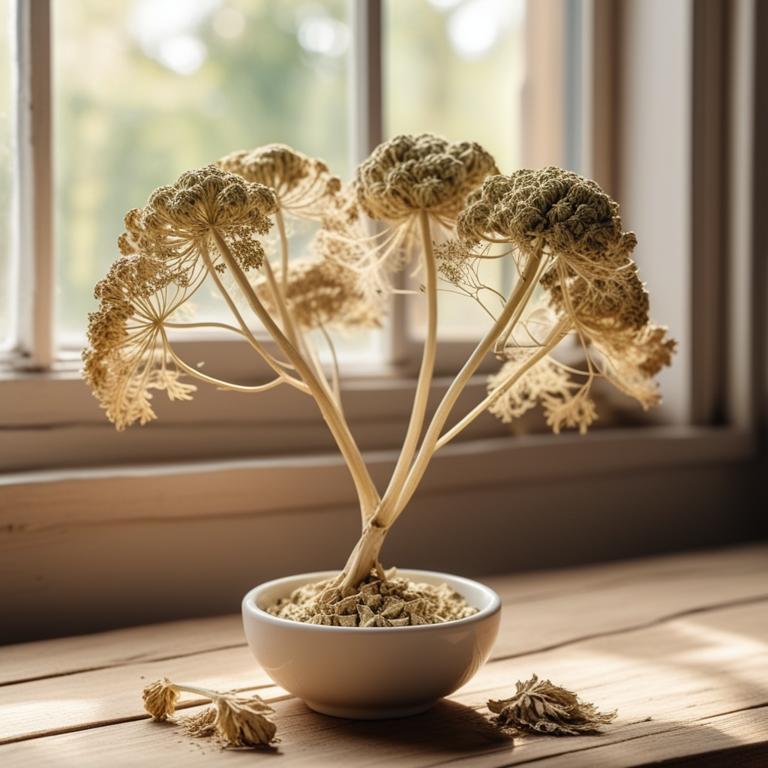
The Science and Herbal Remedies Behind Period Cramps

Understanding Endometriosis Pain: Exploring Causes and Herbal Remedies
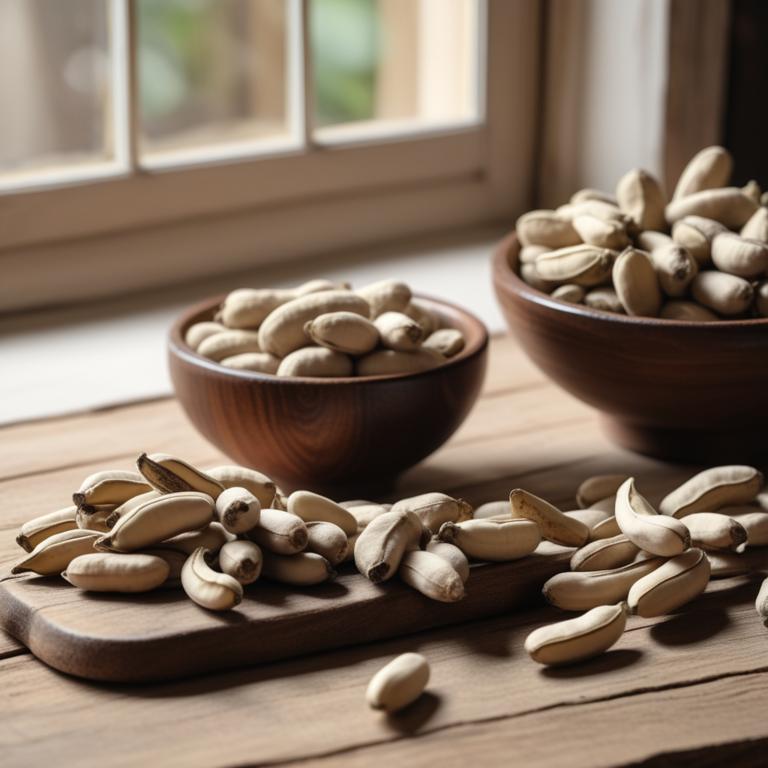
Understanding and Treating Premature Ejaculation: Medical Causes and Herbal Remedies

Understanding Endometriosis: Its Causes and Natural Remedies with Medicinal Herbs
